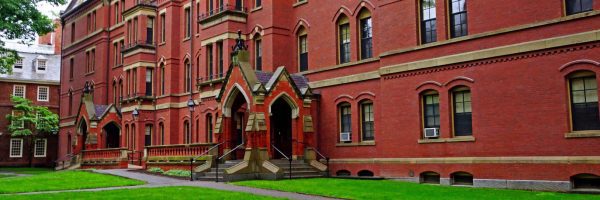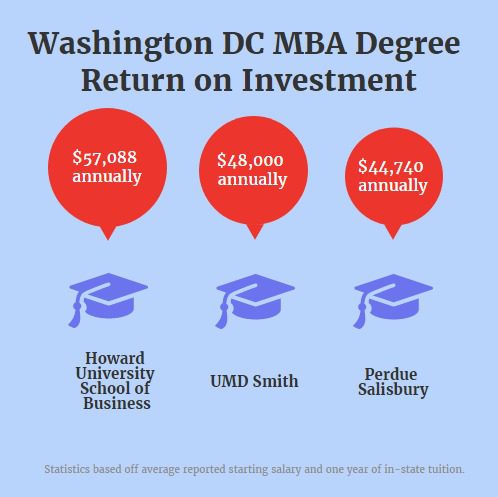Harvard Talks Managing Disorganized Employees, and More – Boston News

Let’s explore some of the most interesting stories that have emerged from Boston business schools this week.
How to Manage Someone Who Is Totally Disorganized – Harvard Business Review
Disorganized employees can be wellsprings of frustration, but there are ways to help them better understand how disorderly tendencies impact others.
Harvard Business School‘s Rebecca Knight recently discussed strategies in HBR, addressing root behavior causes and ultimately develop better systems to manage workloads.
“’Is this person’s approach creating negative outcomes, or is it just a style difference?’ If your report indicates ‘disorganized but otherwise reliable, you may have to back off.'”
Rosie Perez (not the actor), Lead Financial Officer of Global Consumer Business Planning and Analytics at American Express, adds, “It takes a lot of time to change ingrained behavior, but it can be addressed. Most importantly, as leaders, it is our job to help coach our colleagues [with] constructive and pointed feedback.”
You can read more about the research here.
Bye-Bye Ivory Tower: Innovation Needs an Ecosystem to Thrive by Tracy Mayor – MIT Sloan Ideas Made to Matter
Innovation is not exclusively indigenous to Silicon Valley. We continue to see exciting developments in London, Tel Aviv, New York, Boston, China, Nigeria, Ghana, and South Africa. However, despite the benefits of globalization, the world of innovation is not wholly flat.
New MIT Sloan research has determined that there are geographic hotspots, or “innovation ecosystems,” where ideas move more easily from inception to impact.
Phil Budden, a Senior Lecturer Specializing in Innovation and Entrepreneurship, notes how the traditional “triple helix” that has long driven innovation—university, government, and corporations—is now joined by two additional players: entrepreneurs and risk capital.
“It’s so important to have innovation-driven entrepreneurs involved. They’re producing the companies of the future. You can’t just have today’s companies [in an ecosystem], you need to have those leaders who are going to produce future companies.”
Fiona Murray, Associate Dean for Innovation, urges corporations to take advantage of startups and entrepreneurs to help experiment on their behalf.
“What these startups tend to do very well is define, order, and test their assumptions through a series of what we call ‘innovation loops. So, one of the benefits of going from a purely internal research and development process to working externally is that you can really rely on the universities and startups in an ecosystem to do that experimentation for you.”
You can read more about global innovation here and watch the recent discussion below.
Joy Field Garners Top Award from Decision Sciences Institute by William Bole – Carroll School News
BC Carroll School of Management Associate Professor of Operations Management Joy Field has received the highest honor bestowed by the Decision Sciences Institute (DSI), a global society of more than 1,800 scholars dedicated to fostering knowledge for better managerial decisions.
Field was named the 2018 co-recipient of the Dennis E. Grawoig Distinguished Service Award, named for a founder of the 50-year-old Institute. The other recipient was Morgan Swink of Texas Christian University.
DSI President Johnny Rungtusanatham of Ohio State University asserts, “This is a highly competitive distinction awarded to those who have made a continual impact on the Institute and the disciplines it serves.”
Field reflected on her two decades of involvement with the Institute. “DSI has been a major contributor to all aspects of my professional development—publishing, teaching, and service—and I am delighted to have been chosen to receive this award from among the many colleagues who have also contributed so much to DSI.”
Find out more about the recent award here.
Where Have All the New Ideas Gone? – Boston News

Let’s explore some of the most interesting stories that have emerged from Boston business schools this week.
New Ideas are Getting Harder to Find—and More Expensive – MIT Sloan Newsroom
MIT Sloan recently examined just how difficult is it to come up with new ideas in an age of seemingly infinite access.
A new National Bureau of Economic Research study published by MIT Sloan Professor of Applied Economics John Van Reenen, Stanford University professors Nicholas Bloom and Charles I. Jones, and Stanford Doctoral candidate Michael Webb finds that “the productivity of scientific research is falling sharply across the board” due in large part because “researchers are putting in more and more effort to sustain the same—or even a slightly lower—pace of idea generation as we experienced half a century ago.”
Van Reenen writes, “As the total amount of knowledge becomes larger and larger and larger, it becomes increasingly difficult to get to its frontier of that knowledge. It was much easier a couple thousand years ago.”
Two workarounds are to narrow the “focus of one’s studies to specialize in a very particular domain” and expand investment into research. However, both solutions arrive with their own sets of challenges, according to Van Reenan.
“In order to carry on innovating, you’re constantly working together, and it’s very complicated to get all of these people and ideas together.”
Van Reenan is concerned that government investment into scientific research is simply not enough of a high priority.
“I think a lot of the time you hear we’ll just cut the top tax rates to generate lots of innovation — I’m pretty skeptical about that in terms of the incentives you’re going to give. Both have positive effects on growth and equality. Instead of giving away $5 trillion in tax cuts, use that to invest in growth opportunities for the future.”
You can read the full article from MIT Sloan here.
No More General Tso’s? A Threat to ‘Knowledge Recombination’ – Harvard Business Week
HBS Technology and Operations Management Unit Assistant Professor Prithwiraj “Raj” Choudhury is set to publish a new Strategic Management Journal paper that explores the “role ethnic migrants play within the work force,” as well as the “new technologies in countries where they’ve migrated.”
Choudhury points to examples throughout history like Soviet mathematicians who “came to the United States in the 1990s after the fall of the Soviet Union; far ahead in fields like partial differential equations and symplectic topology, they helped their American counterparts solve otherwise intractable problems,” American Chinese cuisine staples like General Tso’s chicken and chop suey, and Indian immigrants who brought double-entry bookkeeping to South Africa in the late 19th century.
Choudhury uses ‘The Ethnic Migrant Inventor Effect: Codification and Recombination of Knowledge Across Borders,’ written with HBS doctoral student Do Yoon Kim, as a launch pad to discuss immigration through the lens of knowledge production rather than job creation—or absorption.
“Instead of seeing migrants through the lens of whether they create jobs or not, we should view migrants as carriers of knowledge—knowledge that could be further recombined by locals. If H1-B was scrapped, or Europe stopped admitting skilled migrants, the knowledge production of the global economy would suffer.”
Choudhury adds, “It’s not only a loss to the firms, it’s also a loss to local workers, who will lose out if they do not imbibe this knowledge from migrants. I would turn the debate on its head and say, it’s not about destroying or creating jobs, it’s about participating in or losing out on creating knowledge.”
You can read the full article here.
Coffee Break – Sawyer Business School
MassChallenge, the self-described “most friendly start-up accelerator on the planet” recently selected WarmUp Protein Coffee, a “coffee-cum-protein beverage” developed by Sawyer Business School alum James Testa (BSBA ’17) as part of Sawyer’s “Crowdfunding the Venture” class.
Testa writes about how getting rejected from last year’s competition sent him back to the drawing board and enabled WarmUp to stand out among the other 1,600 applications. In a recent interview with his alma mater, Testa says:
“I spent all year getting the product out there, building the business, and getting some sales. So when I went back to MassChallenge this year, I feel like I had a much better grasp of my business and who my customers were. And because I had real sales, I was a lot more confident about it. The proof of concept was already there.”
MassChallenge start-ups “get free office space, connections to industry-specific mentors, advice from venture capitalists, and the chance to win up to $1.5 million to help launch a business.”
You can read the full article here.
U. Chicago and Northwestern Deadlines, and More – Chicago News

Let’s explore some of the most interesting stories that have emerged from Chicago business schools this week.
University of Chicago and Northwestern University Reveal 2018-19 MBA Deadlines – MetroMBA
Both of Chicago’s top-tier business schools—Chicago Booth and Northwestern Kellogg—have announced deadlines for the upcoming MBA application season, starting this fall and extending into April of 2019.

Northwestern Kellogg MBA deadlines for 2018-19 begin Sep. 19, 2018 / Photo via northwestern.edu
How Superstition Changes the Way We Make Decisions – Kellogg Insight
Northwestern University Kellogg School of Management professors of marketing Ping Dong and Aparna Labroo recently published new research that explored the impact of superstitious actions on everyday decisions in an edition of Kellogg Insight.
According to the article, they were specifically interested in understanding how they “changed the way we calculate our odds of success or failure when deciding whether to do something risky.”
Labroo uses their study as an opportunity to suck the metaphysical life out of superstitious actions: “We can think about all kinds of good things happening and all kinds of bad things happening, but thinking about the probability and trying to compute expected value is less natural. It takes a little more effort.”
You can check out the full article here.
Could Walk-In Clinics Ease the Opioid Crisis? – Booth Chicago News
New York physician and psychiatrist Dr. Tamir Aldad was frustrated by the “boomerang” effect he experienced with the opioid addicts he treated for “substance use disorder, depression, bipolar disorder, post-traumatic stress disorder, or potential risk of self-harm,” who returned to the “ER in a couple of weeks with the same or worse problem than they came in for in the first place.”
After Dr. Aldad enrolled in Chicago Booth’s Executive MBA program, he launched the Mindful Urgent Care startup, a “walk-in psychiatric clinic designed to … increase mental health access and speed quality and affordable treatment to a population of patients with unmet needs.” Dr. Aldad and his teammates placed first in Booth’s Global New Venture Challenge this past April.
Aldad writes, “In value-based care, patient outcomes really matter. What we are seeing now is that patients in mental health are costing more and more. If a patient winds up in a hospital because they couldn’t get in to their doctor’s office or have a medication refilled, the healthcare costs escalate. We have an opioid crisis, and we have to proactively work to find ways to prevent mental illness from getting worse.”
Read more about Aldad’s experience in the Booth EMBA program here.
Quinlan Alum Leads Through Service – Quinlan School of Business Blog
The Quinlan School of Business at Chicago’s Loyola University recently interviewed alum Illiana Alvarenga BBA ’14, BA ’14 about Quinlan prepared her for a multi-faceted career path that includes a healthy dose of service and service leadership as part of her position as the Chicago chair of UNICEF’s Next Generation Initiative.
“It was at Loyola that I strengthened my love for giving back. For me, Quinlan strengthened a foundation of being strategic, but also encouraged us to always keep in mind what’s good for our communities,” Alvarenga writes.
This year Alvarenga traveled to South Africa with UNICEF to figure out how they “can leverage technology to help with programs to stop illness through increased handwashing, help girls excel in STEM-based careers, and more.”
Alvarenga also works as a competitive intelligence senior associate at JP Morgan Chase, where she focuses on “supporting the business in understanding emerging consumer behavior trends, the changing payments landscape, digital and mobile initiatives in financial services, and new developments in financial technology.”
You can read the full Quinlan interview here.
Inside the MBA World Summit with Two Berkeley Haas MBA Students

Every year, one hundred of the top MBA students worldwide are selected to attend the MBA World Summit out of an applicant pool of 3,000. This once in a lifetime opportunity brings together driven individuals from across the globe to expand their networks and debate some of the most pressing issues of the time. From March 14 – 17, 2018, it was a three-day immersive experience in Cape Town, South Africa that focused on social impact. Continue reading…
Gain a Global Edge with These Philadelphia International Business MBAs

Every day, it becomes easier and easier to make connections across the world, building a global network of business and resources that can help to benefit the world. Due to an increasingly global economy, possessing a deep knowledge and understanding of the way global markets work can be a crucial part of building a business career. There is almost no limit to the types of opportunities an education in global business will provide: from working in the fields of international trade, global business operations or planning or industrial development, and being employed by international agencies, non-profit organizations, governmental, or both public and private corporations.
According to Michigan State program globalEDGE, “demand continues to grow for individuals who understand the global context of business: from the logistics of international trade and cross-border investments to the cultural and ethical issues that are imbued in the practice of business around the world. By studying international business, you will learn about world cultures and societies, and be challenged to approach issues from different perspectives.”
In choosing to study international business in the Philadelphia metro area, aspiring business leaders can center themselves in a growing market at the center of United States history and global trade. We’ve rounded up some of the area’s top MBA programs that offer a concentration in international business, allowing students to gain specific knowledge and skills to make an impact in the global economy.
Fox School of Business – Temple University
Consistently rated one of the top business schools in the country, the Fox School of Business at Temple University offers students a number of opportunities to gain skills and earn a degree in the field of global business. The Global MBA program, based in Philadelphia, is taught by world renowned faculty and is designed to provide an experiential education in international economics, with live consulting, internship and professional development opportunities. Additional programs like the MBA from Temple University Japan in Tokyo and the EMBA at Temple University Paris offer further opportunities for students to gain a hands-on global experience with a strong business background.
Lerner College – University of Delaware
The MBA at University of Delaware’s Lerner College of Business gives students the opportunity to concentrate in international business, providing the solid business background they will need to effectively conduct business in a global environment. In addition to U.S. citizens looking to expand their knowledge in international business and help their organizations to expand overseas, many students in the Lerner MBA program are international, returning home with a deep understanding of U.S. customs and the ability to navigate business across borders.
YOU MAY ALSO LIKE – Searching for the World’s Top MBA Recruiters: Comcast
Rutgers School of Business, Camden
Students interested in concentrating in International Business and Operations can do so at the Rutgers School of Business by pursuing a number of electives in the field. Students can take a number of electives in the fields of International Business and Operations Management to complete the concentration, including courses like: International Management, Global Operations Information Technology, Global Marketing Strategy, and International Study Abroad in countries such as South Africa, France, and Brazil.
Smeal College of Business – Penn State
While the Smeal College of Business at Penn State does not directly offer a concentration or major in international business, it is an available as an option. At Smeal, options constitute a briefer but still targeted study within a particular area, allowing students to gain a deeper education in Global Business while still receiving the more general education of an MBA.
The Wharton School – University of Pennsylvania
The Wharton School at UPenn, well-known as one of the top business schools in the world, provides students the opportunity to pursue a joint MBA/MA in International Studies. The MBA/MA Lauder Joint-Degree provides students a range of resources and educational experiences in global business, such as the Global Knowledge Lab, which involves students working together as a team to produce a thorough research paper/master’s thesis. The program also includes two short global immersions and an optional ten-day trek called Culture Quest, organized completely by students in the program. The six areas of concentration students may choose to specialize in include: Africa, East and Southeast Asia, Europe, Latin America, South Asia, the Middle East, and North Africa.
Return on Investment: Getting Your Money’s Worth in Washington DC

Earning an MBA is a big commitment in terms of both time and financial resources. Attending school in Washington, D.C. will open students up to a wealth of job and internship opportunities. However, with the cost of living and education in the financial capitals of the US rising at an alarming rate, choosing a school that will leave you with the smallest debt for the best job prospects is paramount to not being saddled with debt for the next 30 years of your life.
Though a price can’t be put on the value of the stellar education and business acumen you’re sure to get in business school, we can certainly try. Below, we’ve worked out the schools that guarantee the best return on investment in Washington DC metro.
Washington DC MBAs That Offer the Best Return on Investment
University of Maryland R.H. Smith School of Business
At the University of Maryland’s R.H. Smith School of Business, students can earn their degree just eight miles from the White House. Tuition at UMD Smith comes to about $47,004 for in-state residents per year and $56,184 for those from out-of-state. Though the business school’s MBA program may not be considered “cheap,” the average starting salary for MBA’s from the class of 2016 was $95,600—nearly double the annual tuition cost for both in and out-of-state students. This incredibly high average starting salary makes Smith well worth the price. In the past, Smith alumni have landed internships and full-time positions at companies like Amazon, Marriott, and Google. Thus far, majority of Smith MBA grads have gone on to pursue careers in marketing or consulting.
According to the recently released Forbes list of the best MBA programs in the U.S., UMD Smith (46th overall) MBA grads now expect a net-gain of $45,000 five years after graduation, when taking into account the average salary increase, cost of the program, and more.

Perdue School of Business—Salisbury University
Though it is closer to Baltimore than DC, Perdue School of Business MBA students are sure to see a significant return on investment for their education. The tuition is only about about $11,760 for in-state residents and $23,850 for out-of-state applicants. Not to mention the average alumni salary is $56,500, which essentially means the average alum sees a significant return on investment in less than a year. The year-long program is delivered in a hybrid format, so students only need to meet on campus one night per week. Students looking for even greater flexibility can also choose to take 100 percent of courses online. Additionally, students who wish to move at a slower pace can take classes part time and choose their own schedules.
Howard University School of Business
The Howard University School of Business MBA program was the first DC university to earn AACSB International accreditation. Annual tuition for the full-time MBA program per year is a reported $33,996. The total for the two-year program comes to around $70,968. Considering U.S. News puts the average MBA starting salary at $91,084, the return on investment is undeniable. Howard also offers a variety of dual degree programs, including JD/MBA, MD/MBA, BSE/MBA, and more. One unique feature of Howard is its Global Trilateral MBA (GTMBA), which gives students international consulting experience in places like China and South Africa.
